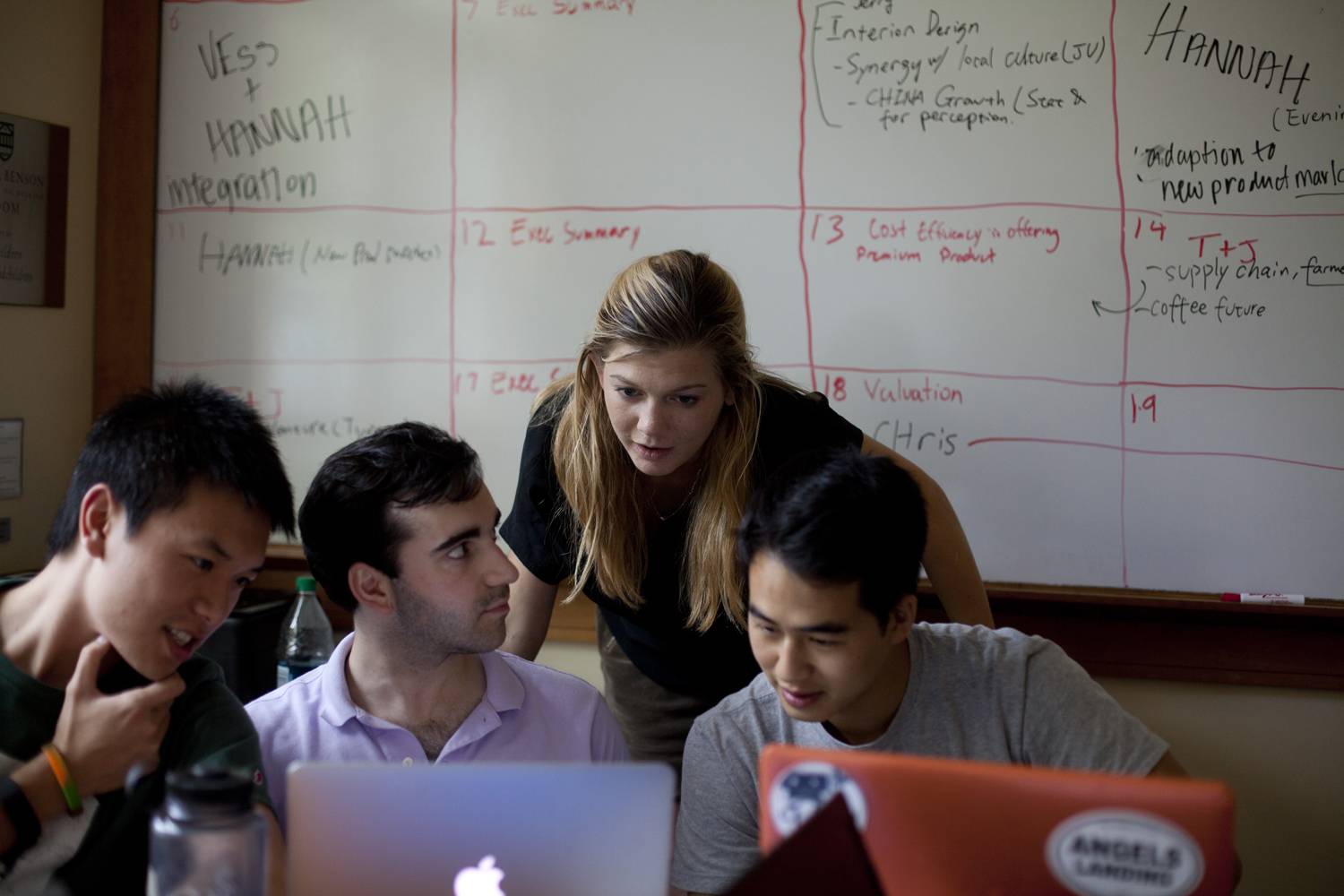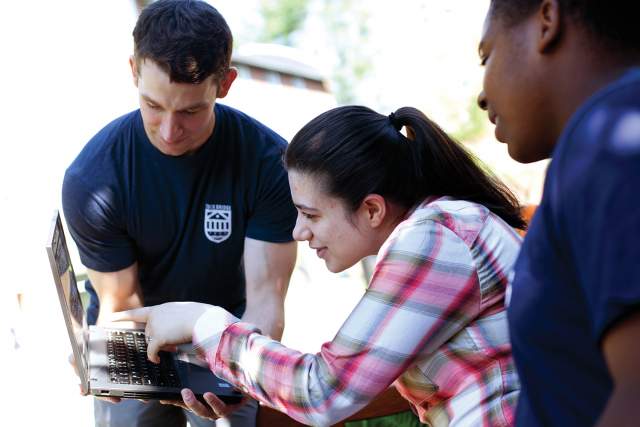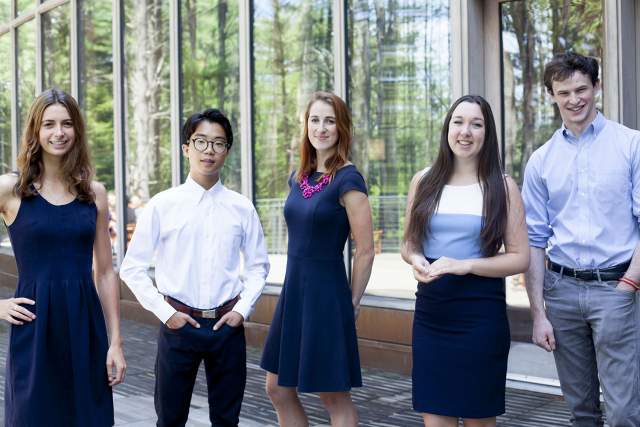The Value of Learning Valuation
In the principal project for the Business Bridge program, students acquire skills for life.

At the beginning of the program, each group of students picks a company to analyze—often one undergoing major change.
Valuing a company is one of the most difficult processes in business, requiring an in-depth analysis of finances, marketing, strategy, and the economic environment.
For that reason, it is the perfect capstone for Tuck Business Bridge, a program that immerses liberal arts and science undergraduates in all aspects of business. The four-week program is structured in a way that helps students gradually make sense of the data, building a model layer by layer, until they have created a complete picture.
“Some of these are English majors who have spent the last four years reading Milton, and have never seen a balance sheet,” says Clinical Professor of Business Administration Bill Martin D’87 and faculty lead on Bridge valuation projects. “Suddenly they are being forced into the deep end.”
Martin, who ran JP Morgan’s bond option business in London before coming to Tuck, came up with the idea for the project 10 years ago alongside Bob Hansen, the Norman W. Martin 1925 Professor of Business. Now, a decade later, the project is routinely cited by students as the most meaningful part of the experience.
At the beginning of the program, each group of a half-dozen students picks a company to analyze—often one undergoing dramatic change. One group this past summer, for example, analyzed Whole Foods, endeavoring to determine whether Amazon paid a fair price in its acquisition of the company. The group, says team member Theo Minerva D’18, a geography major, determined that due to competitors with cheaper organic food such as Target and Walmart, the company wasn’t worth what Amazon paid for it—which implies Amazon might see something in the company beyond its fundamentals. “That they are willing to pay a premium and not apologize for it tells you they are planning something exciting,” he says.
Another group took on Tiffany & Co, the 180-year-old jewelry company that has just shaken up its executive leadership. The team initially faced data overload, says James Pederson, Vassar ’17, an English major. Eventually, they determined that the company was poised for a surge due to its big bet on new stores in Asia. Sure enough, over the summer, its share price rose from 89 to 96. The most rewarding aspect for Pederson was learning to work in a group. “Early on, our team made a pact that everyone would stay in the room until the last person was done with their work,” he says.
While some students will go on to pursue an MBA, the overall experience the project offers can help them in whatever they choose to do, says Martin. “It’s really a framework they can apply in any situation, whether it’s in business, or serving on a nonprofit board, working in government, or trying to decide what job to take or what city to live in.” Pederson, for one, has already used the training in his current job working in film financing in New York, as he’s analyzed how to add value to the company. “I felt it was everything I needed to know in order to succeed.”
*This article originally appeared in print in the winter 2018 issue of Tuck Today magazine.

